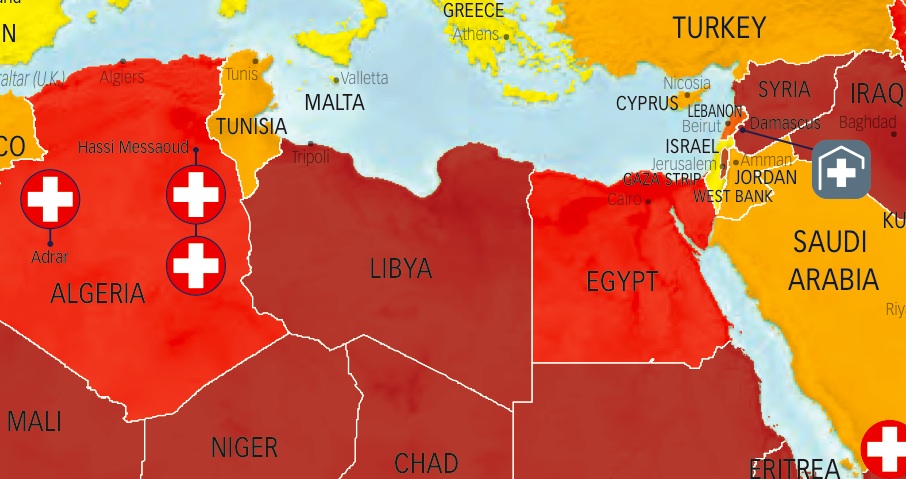
Tripoli, 7 March 2013:
A world health map released by a medical and security company puts Libya’s health system on a par with war-torn Syria and Mali.
International SOS, a company specialising in helping organisations manage the health and security risks facing their travelling and expatriate employees, may have misrepresented Libya as a country of ‘extreme medical risk.’
International SOS’ World HealthMap 2013 puts countries into five medical risk categories from low to extreme. “Trends show in Syria and Libya that medical conditions have worsened and are extreme risk destinations due to geopolitical uprisings and instability,” said International SOS: “Knock-on effects to medical supplies and infrastructure, as well as food and water safety, are evident.”
This suggests the findings could be based on media reports of instability, rather than accurate and up-to-date healthcare data, which are extremely difficult to access for Libya. The company, however, said it assesses a range of factors, including higher risk remote areas, and Libya has a large desert region.
With International SOS’s category of Extreme Medical Risk, “healthcare for citizens, travellers and expatriates is almost non-existent or severely overtaxed,” in the country.
“Even low-quality emergency and dental services may not be available and moderate and severe illness or injury will require international evacuation.”
Libya’s health system, suffering long-term neglect and lack of investment, is indeed inadequate, with high rates of infection in hospitals and limited medical equipment. However, a year and a half after the end of the revolution, can Libya’s rating really be similar to Syria’s?
Libya seems to fall much more comfortably into the ‘high medical risk’ category, the next one down, where “the general standard of medical care is poor.” In countries with a high medical risk, “moderate and severe illness or injury generally will require international evacuation,” and “quality dental services are generally not available,” according to International SOS.
Billed as “a tool to help organisations understand the medical risks in the markets where they operate and identify how to pre-empt health threats to the employees,” the International SOS World HealthMap will do little to improve Libya’s current international reputation, as represented by the media.
The Libya Herald has not yet been able to clarify what Libya-specific data was used in the research. [/restrict]








